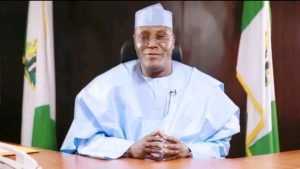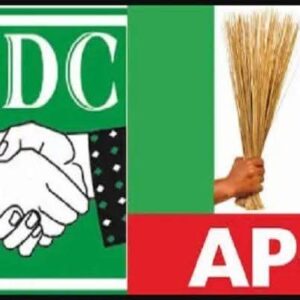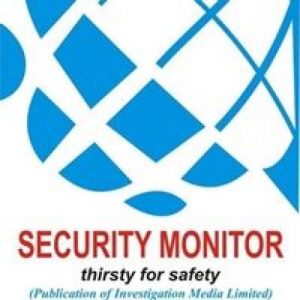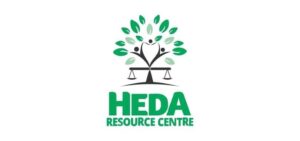Kwara IGR: The Backbone of Government During Financial Crisis
By Oyewale Oyelola,ILORIN/
Kwara State Governor, Alhaji AbdulFatah Ahmed through an executive bill passed by Kwara State House of Assembly established Kwara State Internal Revenue Services (KW-IRS) in June 2015 as the sole agency to collect revenue on behalf of state government. KW-IRS establishment was an initiative of incumbent governor of Kwara State to rescue the state from financial crisis owing to fall in crude oil price globally. Prior to creation of the independent revenue services, the state of harmony was part of states that depend solely on funds from federation account to meet their financial obligations.
KW-IRS led by reputable and goal oriented Business Administration scholar, Dr. Muritala Awodun with his committed team has increased the Internally Generated Revenue (IGR) geometrically by moving the State Monthly IGR from N500million to N1.5billion with the first year of its existence. Its noteworthy that the Revenue Service focuses on collection of taxes as stipulated by law, block leakages and other sharp practices associated with previous revenue collection system. KW-IRS since commencement of its operation has not introduce new tax(es) but only facilitate tax payment attitude among Kwarans/residents by introducing incentives to encourage tax payers.
Although, some people have accused KW-IRS of imposing unnecessary/double taxes on the citizenry but finding shows that the allegations are not valid and baseless. The tax structure often referred to double taxation is known as multiple taxation. For instance, a civil servant paying PAYE in office, land use charge at home and annual business permit in his/her shop might feel the government is over charging him/her but true picture is that such person is paying taxes in different legitimate ways.
As it’s now, the kwara State-Internal Revenue Service is generating average of N1.5billion monthly as the body generated less than N20billion in 2017. Also, the Executive Chairman of KW-IRS recently revealed about 50 percent of taxable residents of the state are not still paying taxes. This indicates that state monthly IGR would increase if potential tax payers perform their civil responsibilities by paying tax.
Apparently, if the level of tax compliant improves Kwara State government will have more income to meet the needs of the populace and allow everybody across the state enjoy dividends of democracy. This will also give the populace to challenge government by making them accountable, if government fails to play its part.
However, keeping tax payers abreast with how government is channelling their taxes would encourage full compliant and promote prompt payment. It will also prompt those evading tax to join the honourable league of tax payers.
To set the right prospective, the average monthly revenue of Kwara State from Federation Accounts Allocation Committee (FAAC) is N2.5billion while there are time the state just get N2billion. The monthly average revenue from FAAC is not enough to pay workers’ salaries of N2.7billion monthly. Therefore, the state government uses IGR to augment their mandatory obligation to workers and this has given Governor Ahmed’s led administration clean bill in term of salaries payment. As at today, when some state governments are owing workers above 10 months salaries or result to payment of half salary, the tax payer’s money has empowered Kwara State Government not to owe any State’ worker.
Aside that, the state government is servicing loans with millions of naira monthly. Some of the loans were accrued before Governor Abdulfatah Ahmed led administration came on board but it’s the responsibility of government to meet service level agreements signed with creditors. We also need to understand that urgency of certain critical projects aim at making life comfortable for the populace are sometimes huge budget beyond government purse. Hence, the government usually access credit facilities to execute such projects.
Furthermore, the government monthly injects N500million to Kwara Infrastructure Development Fund (IF-K) for development of infrastructure across the state. Through IF-K, Governor Ahmed’s administration completed 17 road projects across the state in 2017 while work is ongoing in 30 roads in all the 16 local government areas of the state. The Kwara State University expansion projects in Ilesa Baruba Campus, Osi Ekiti Campus and Postgraduate School located in Ilorin was made possible through IF-K. The tax payers’ money is also at work in Daimond Underpass Bridge, Geri Alimi, Sango-UITH dualization road, New Secretariat Complex, GRA Ilorin among others.
Likewise, the Light Up Kwara street light project executed under Public Private Partnership became reality through IGR. The reconstruction of Alagbado Bridge awarded for N82million in December 2017 will be funded with IGR. The building and equipping of world class International Vocational Technical and Entrepreneurship College (IVTEC) commissioned in November 2017 was made possible through revenue generated by KW-IRS.
In education, Kwara State is giving three state owned colleges of education: Ilorin, Lafiagi and Oro, Institute of Legal Studies, School of Nursing, Ilorin, Health Technology and School of Midwifery, Oke-Ode N250-300million quarterly as subvention. Kwarans in tertiary institutions received about N50million as bursaries in 2017. The primary and secondary schools would also feel the impact of tax payer’s money this year as the state government has released N800million as counter fund for UBEC for building of classrooms.
While, the health sector is not left out as government employed 300 medical personnel last year and all health facilities have been equipped with modern equipment and drugs.
Moreover, the agriculture sector is also feeling impact of government as expected. Over 3000 farmers were supported through ODDA, genuine farmer across the state also received subsidised fertiliser for farming and AgroMall is giving free seeds to farmers aside other support services been rendered.
Similarly, Governor Ahmed’s administration has provided over N500million credit facilities for about 50,000 Medium Small Micro Enterprises in the last three years. The artisans, traders, youths, women and transport unions are also reaping the fruits of the increase in Kwara IGR through various empowerment programmes.
The list of what present administration in Kwara is using IGR for are endless, the huge investment in security sector by supporting security agencies in the state has turned Kwara State to safe haven for residents and attracting both local and foreign investors.
Therefore, Kwarans/residents should continue to pay their tax (es) prompt to make more resources available for government to carry out developmental projects as the state government would continue to use state’s resources prudently and run open, transparent and accountable administration.







